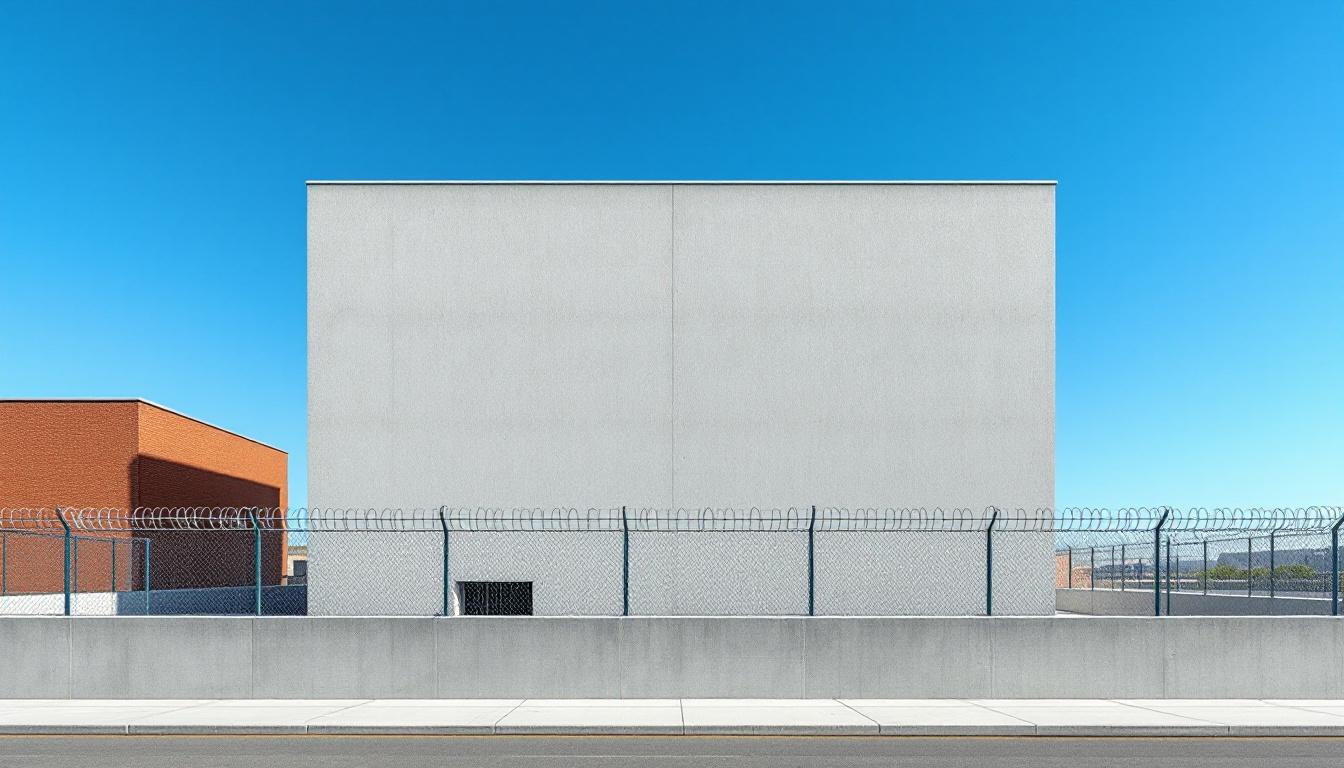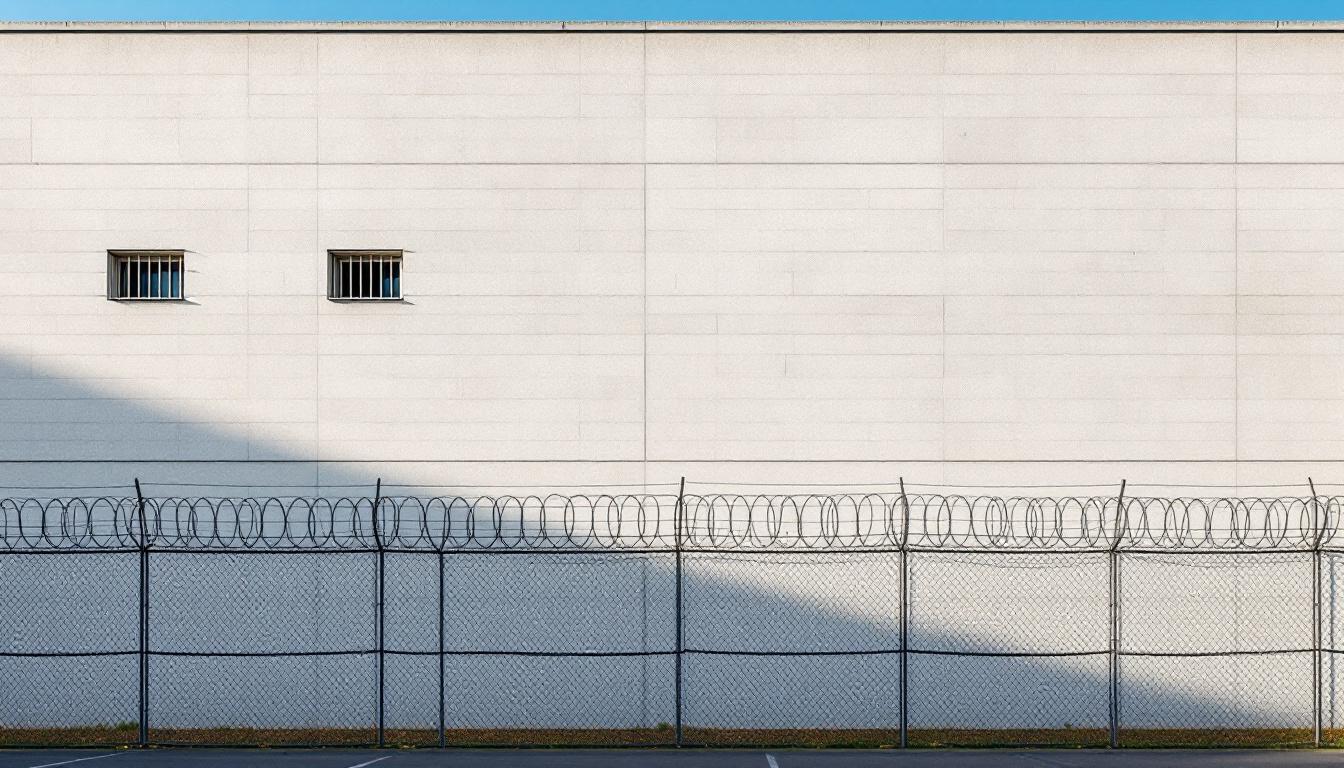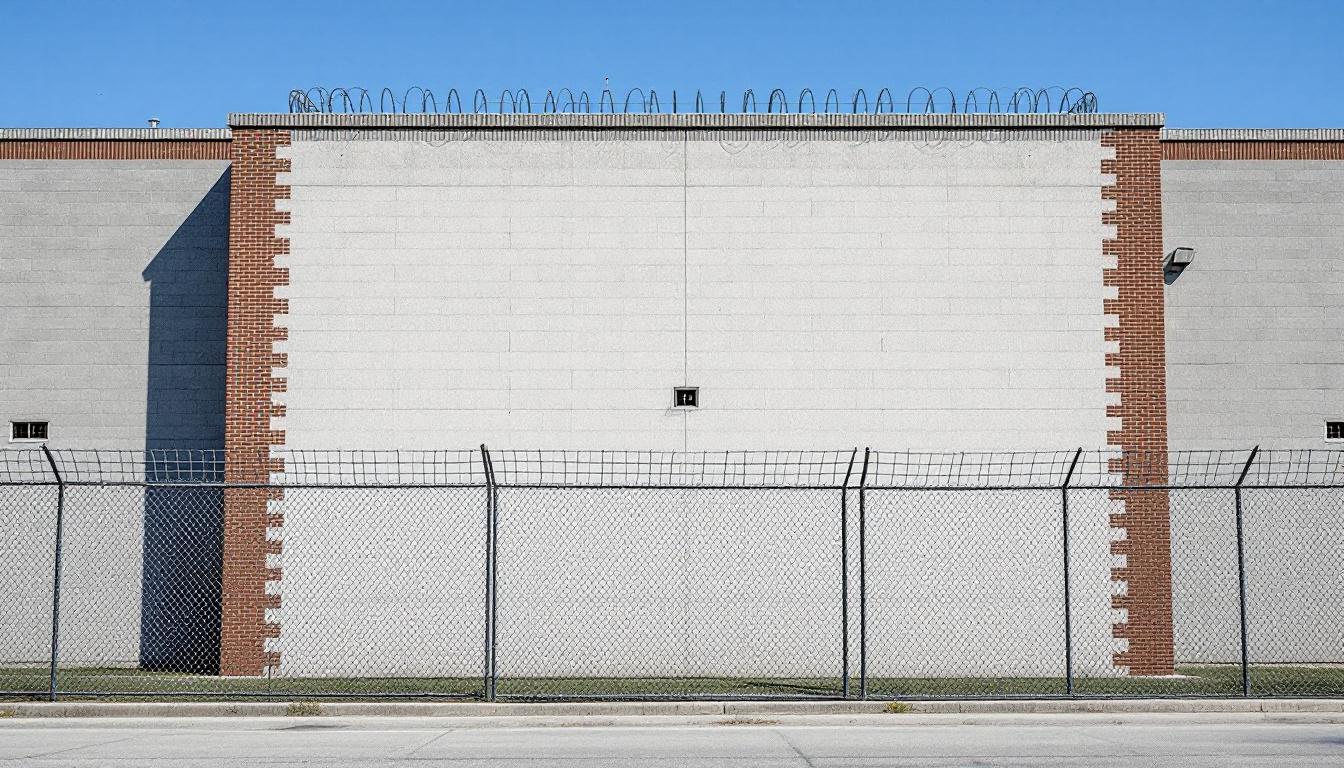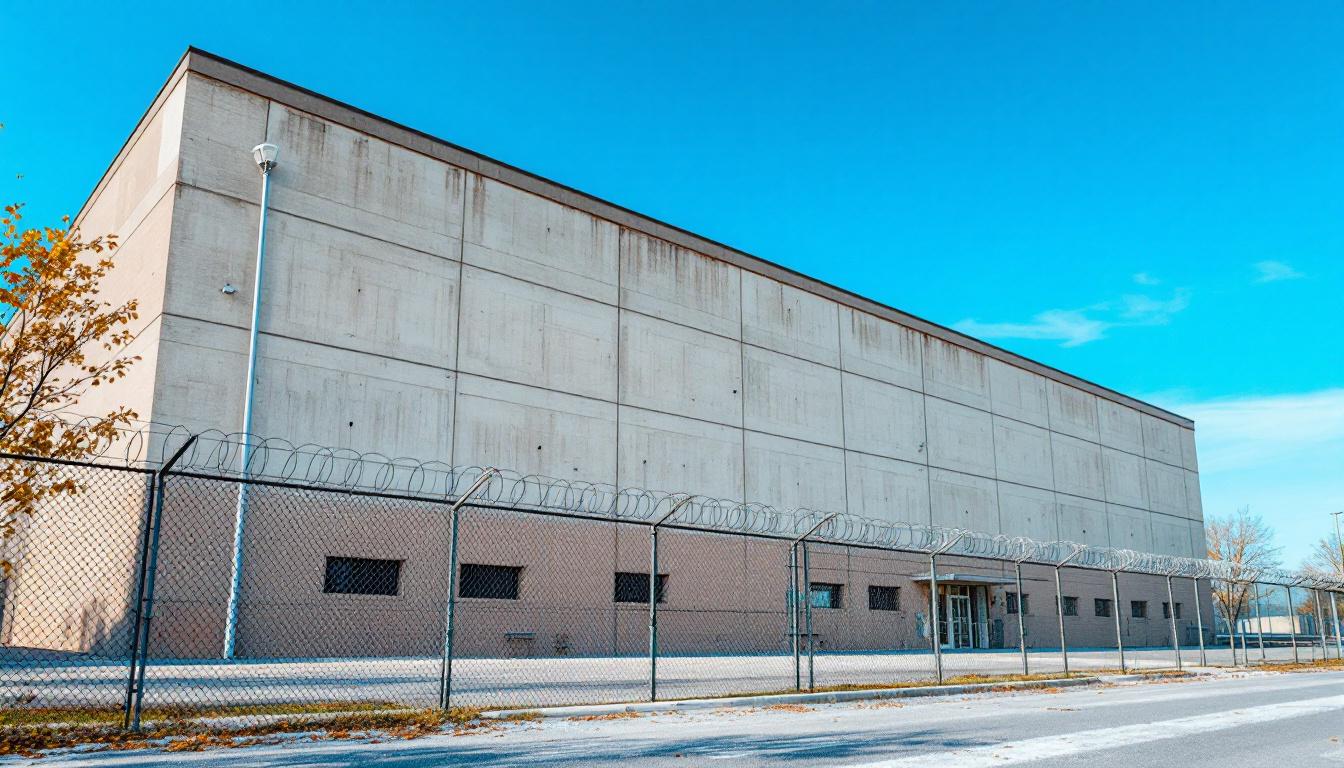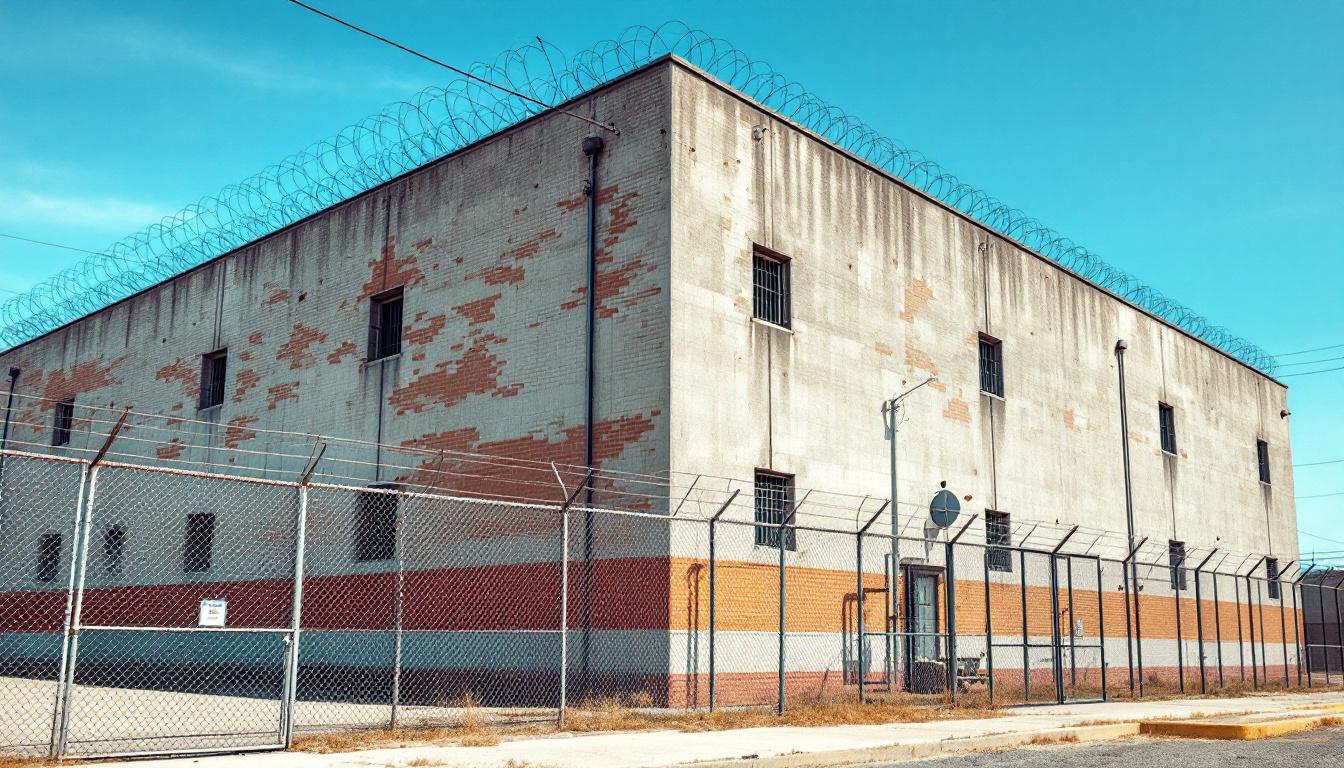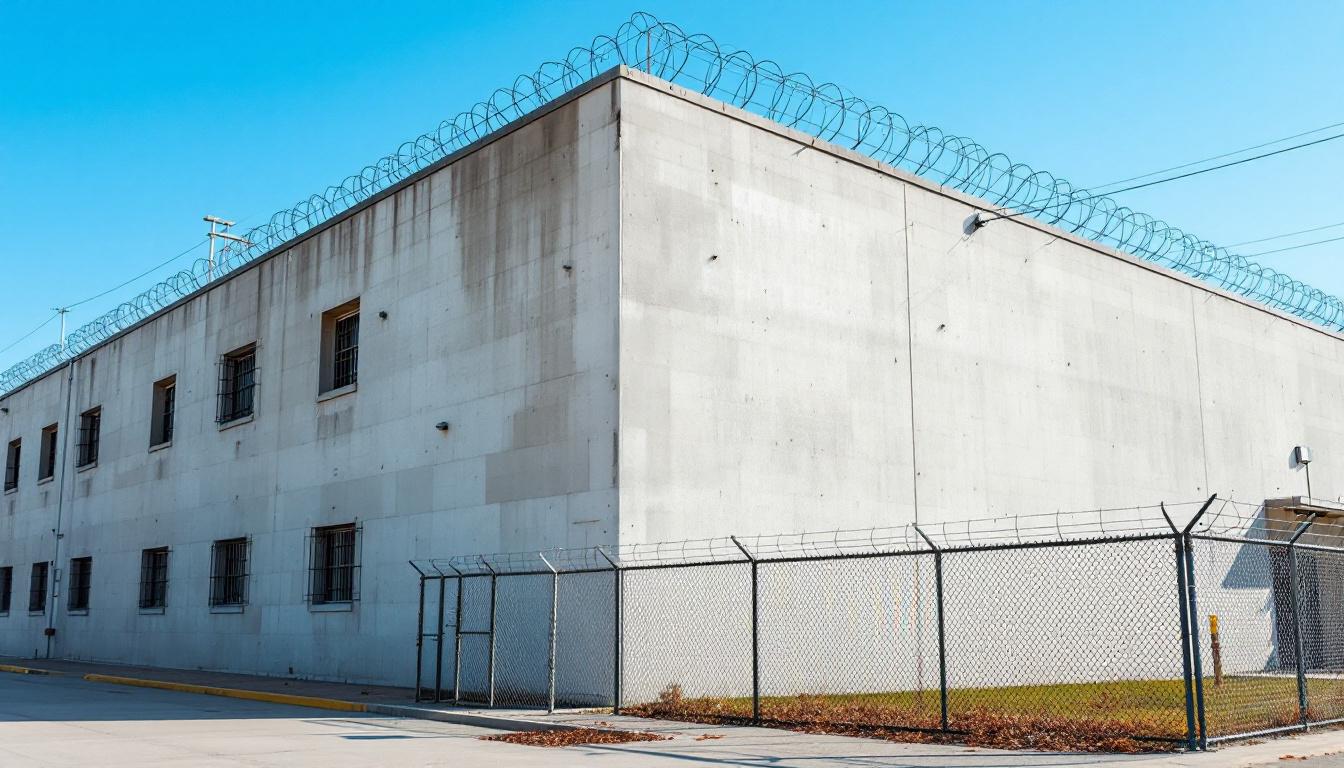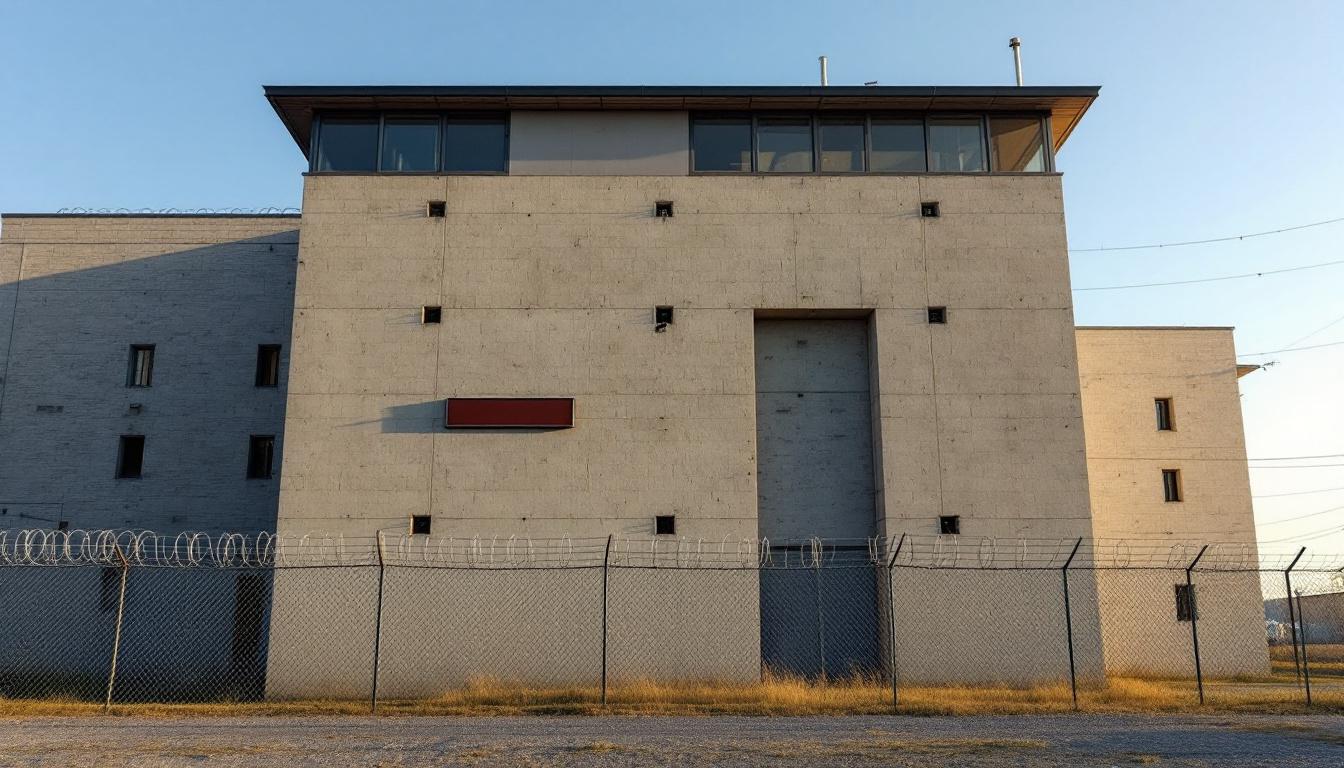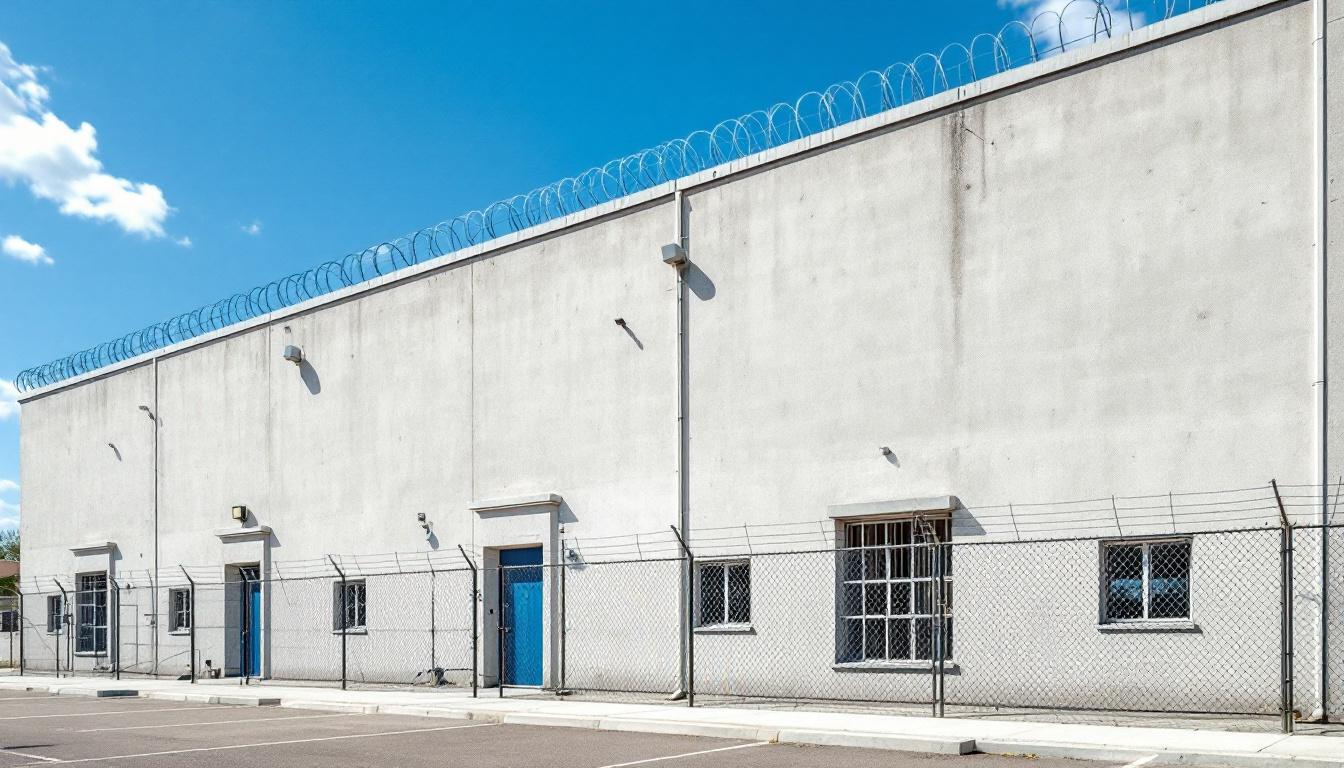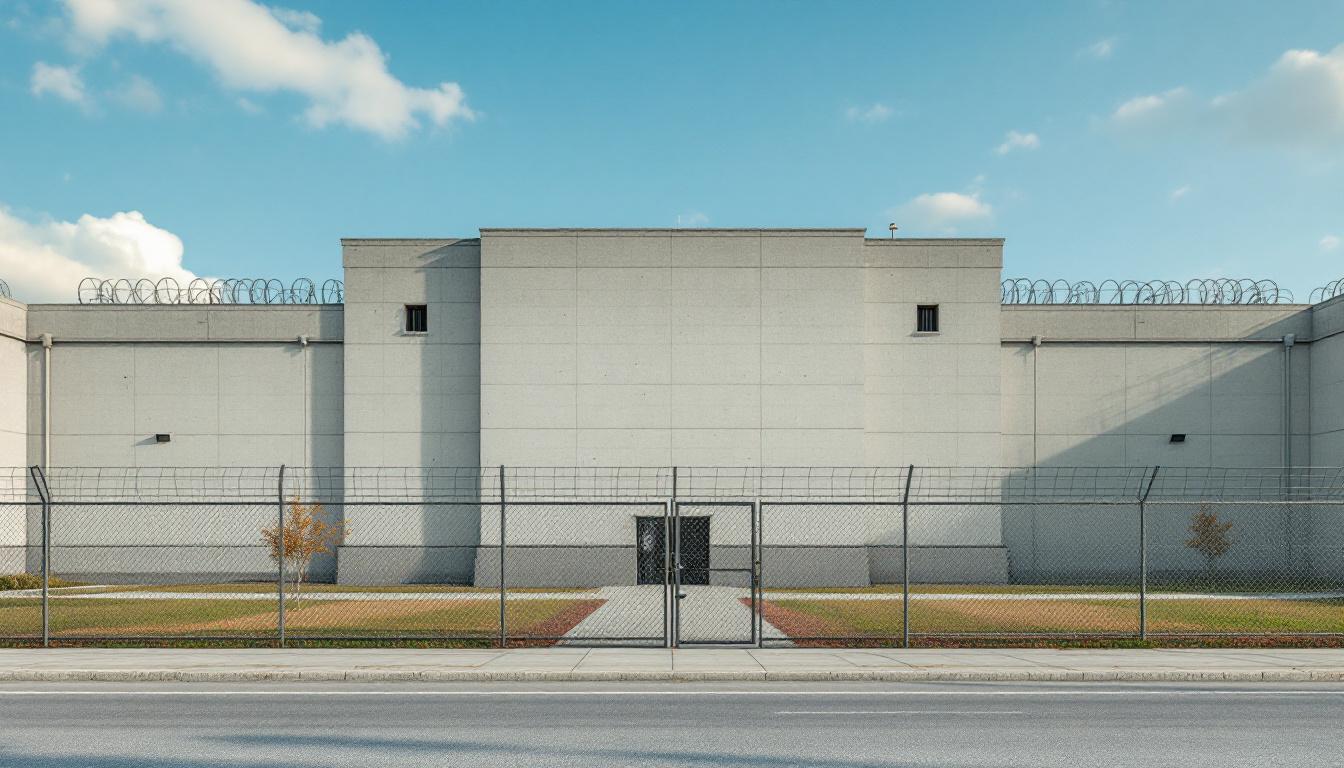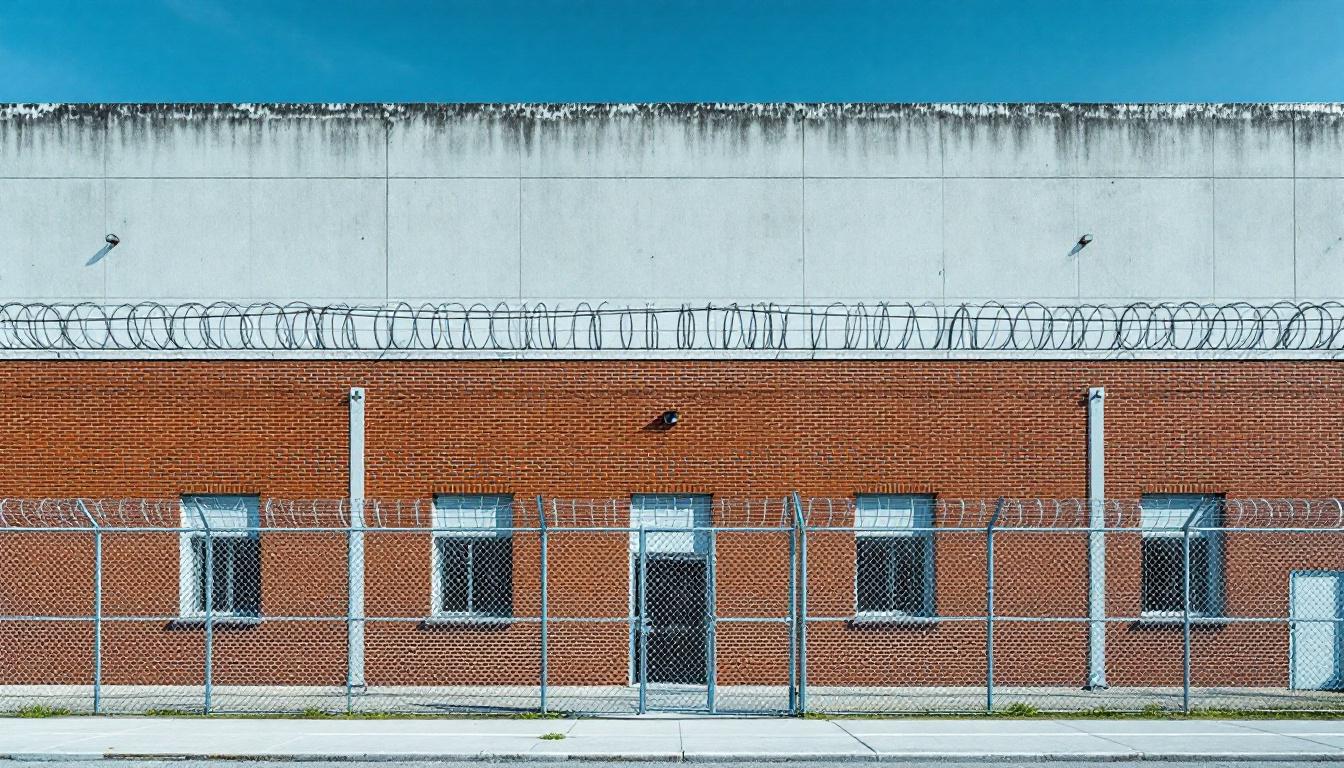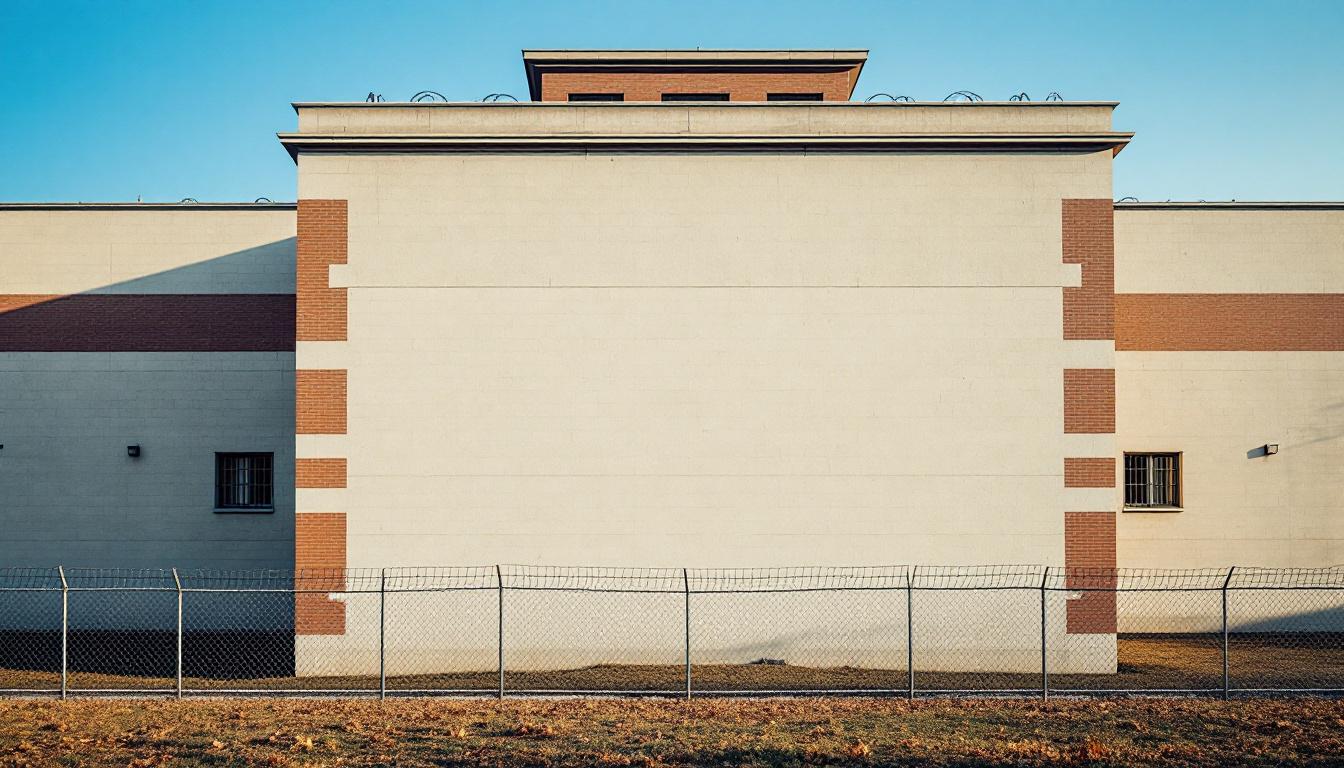
Quick Navigation
How to contact an inmate at Jessup Correctional Institution
This comprehensive guide will walk you through how to connect with an inmate at Jessup Correctional Institution. Follow the steps below to find an inmate and send letters and photos:
- Search for the inmate using our search tool below
- Create your account or log in to Penmate
- Write your message (up to 6,000 characters)
- Send instantly - inmates receive printed copies daily
Find an Inmate
Search for an inmate to start communicating today
Tip: You can search by first name, last name, or inmate ID number
To contact a person at Jessup Correctional Institution start by searching for the person on the official facility website. Perform a search by following these steps:
- Step 1: Enter their first name and last name into the search form and click "Search"
- Step 2: Locate their inmate record
- Step 3: Write down their Inmate ID and any housing information provided
Important! Be sure to enter the person's full name. Nicknames should not be used.
How to Send Messages to Inmates

You can use your phone or computer to send emails, letters, and photos to an inmate. Messages are sent electronically to inmate tablets or kiosks at the facility. If you would like to send a message, start by searching for an inmate at Jessup Correctional Institution.
Sending Photos and Postcards

A great way to send love and support to a loved one at Jessup Correctional Institution is to send photos and postcards. It only takes a few minutes to send photos from your phone and it makes a huge difference. You can also mail postcards with words of support and inspiration, or design your own postcard for special moments like birthdays and holidays.
Important! Be sure not to send any explicit photos or they may not be approved by the facility. You can also use a photo printing app like Penmate to make sure your photos are printed at the correct size (4x6 or 3x5) and are mailed according to the rules and regulations of Jessup Correctional Institution.
Frequently asked questions about Jessup Correctional Institution
-
How long does it take to deliver a message?
If you're sending an email message your letter is usually delivered within 24-48 hours. For messages sent via mail you should expect delivery within 3-7 days. All messages will need be approved by Jessup Correctional Institution.
-
How much does it cost to send a message to Jessup Correctional Institution?
You can send a message free using your phone or mail a message via USPS for the price of a $0.60 stamp and envelope. You can also purchase credits or e-stamps from services starting at $1.99.
-
What services can I use to contact an inmate at Jessup Correctional Institution?
Penmate
You can use Penmate to send letters and photos to an inmate from your phone. It's an easy way to stay in touch during your loved one's incarceration. Use the inmate locator to find an inmate's location and contact information, then you can send messages within a few minutes.
Securus messaging
Securus may be another option for communicating with an inmate at Jessup Correctional Institution. You can create a friends and family account and purchase credits to send messages. All messages will be reviewed and must be approved by the facility.
JPay
Some county jails and state prisons may support sending messages with JPay. You must register an account with the system, find your loved one, and purchase stamps to send messages. For some locations you can also attach photos.
Smart Jail Mail
You may also check if Smart Jail Mail is available at Jessup Correctional Institution. Smart Jail Mail is operated by Smart Communications and has contracted with some state and county jails. After purchasing credits, your messages and photos are sent to the facility, printed out, and then handed out to your loved one.
-
What is the mailing address of Jessup Correctional Institution?
Mailing address:
Jessup Correctional Institution
7805 House of Correction Rd
Jessup, MD 20794
Phone: (410) 799-6100Business hours:
- Monday: 4:00 – 9:00 PM
- Tuesday: Closed
- Wednesday: Closed
- Thursday: Closed
- Friday: 4:00 – 9:00 PM
- Saturday: 4:00 – 9:00 PM
- Sunday: 4:00 – 9:00 PM
-
What are the visiting hours at Jessup Correctional Institution?
Visiting hours at Jessup Correctional Institution vary by housing unit and security level. Generally, visits are scheduled on weekends and holidays, with some facilities offering weekday visits. Contact the facility directly at (410) 799-6100 or check their website for the current visiting schedule. Visits typically last 30-60 minutes and must be scheduled in advance.
-
What items are prohibited when sending mail to Jessup Correctional Institution?
Prohibited items typically include: cash, personal checks, stamps, stickers, glitter, glue, tape, staples, paperclips, polaroid photos, musical or blank greeting cards, hardcover books, magazines with staples, and any items containing metal or electronics. Only send letters on plain white paper with blue or black ink. Photos must be printed on regular photo paper (no Polaroids). Always check with Jessup Correctional Institution for their specific mail policies.
-
How do I send money to an inmate at Jessup Correctional Institution?
You can send money to an inmate at Jessup Correctional Institution through several methods: 1) Online using JPay, Access Corrections, or the facility's approved vendor, 2) Money orders mailed directly to the facility with the inmate's name and ID number, 3) Kiosks located in the facility lobby, or 4) Over the phone using a credit or debit card. Fees vary by method, typically ranging from $2.95 to $11.95 per transaction.
-
Can I schedule a video visit with an inmate at Jessup Correctional Institution?
Many facilities now offer video visitation as an alternative to in-person visits. At Jessup Correctional Institution, video visits may be available through services like Penmate, Securus Video Connect, GTL, or ICSolutions. Video visits typically cost $10-20 for 20-30 minutes and must be scheduled in advance. You'll need a computer or smartphone with a camera and reliable internet connection. Contact the facility for their specific video visitation policies and approved vendors.
-
What identification do I need to visit an inmate at Jessup Correctional Institution?
All visitors must present valid government-issued photo identification such as a driver's license, state ID, passport, or military ID. Minors must be accompanied by a parent or legal guardian who can provide the minor's birth certificate. Some facilities require visitors to be on the inmate's approved visitation list, which may require a background check. Contact Jessup Correctional Institution for specific ID requirements and visitor approval procedures.
-
How can I find out an inmate's release date?
To find an inmate's release date at Jessup Correctional Institution, you can: 1) Use the online inmate search tool if available, 2) Call the facility's records department, 3) Contact the inmate's case manager or counselor, or 4) Have the inmate provide this information during a call or visit. For privacy reasons, some facilities only release this information to immediate family members.
Facility Overview
Contact Information
Jessup Correctional Institution7805 House of Correction Rd
Jessup, MD 20794
Phone: (410) 799-6100
Official Website

About Jessup Correctional Institution
Nestled in the heart of Anne Arundel County, the Jessup area has long served as home to this MD correctional facility, which operates under a comprehensive philosophy emphasizing structured rehabilitation and community reintegration. Jessup CI functions as an integral component of Maryland’s correctional system, typically housing residents who may benefit from various educational and vocational programming designed to support their eventual return to communities throughout the south region and beyond.
The facility’s operational approach generally centers on providing residents services that may include academic instruction, job skills training, and behavioral programming tailored to individual needs. Staff members often work to create an environment where residents can access resources that support personal growth and development during their incarceration. Educational opportunities typically encompass basic literacy programs, GED preparation, and potentially vocational certifications in various trades that align with regional employment demands.
Through its location in Jessup, MD, this correctional facility serves not dedicated the immediate area but often accommodates residents from across Maryland’s southern counties. The institution’s programming philosophy generally emphasizes the importance of preparing individuals for successful community reentry through structured daily routines, counseling services, and skill-building activities that may help reduce recidivism rates while supporting public safety goals throughout the broader region.
Programs & Services
Rehabilitation through skill-building and personal development forms the cornerstone of initiatives at Jessup CI. The facility typically emphasizes a comprehensive approach that addresses multiple aspects of resident growth and preparation for successful community reintegration. These initiatives often focus on providing practical tools and knowledge that residents can apply both during their incarceration and upon release.
Educational and vocational initiatives may deliver structured learning opportunities designed to enhance residents’ academic credentials and job readiness. The educational component often includes basic literacy programs, GED preparation, and continuing education courses that help residents advance their academic standing. Additionally, vocational training initiatives typically provide hands-on instruction in various trade skills such as construction, automotive repair, and computer technology. These programs often emphasize practical skills that align with current job market demands and may include certification opportunities that residents can pursue.
Support services and therapeutic initiatives focus on addressing underlying issues and strengthening family connections. Therapeutic services may deliver counseling programs that help residents develop coping strategies and address substance abuse or mental health concerns. Family reunification initiatives often include structured visitation programs and communication workshops designed to rebuild and maintain healthy family relationships. Additionally, arts and crafts programs typically provide creative outlets that support emotional well-being and may help residents develop new interests and skills that contribute to their overall rehabilitation process.
Daily Life & Visitation
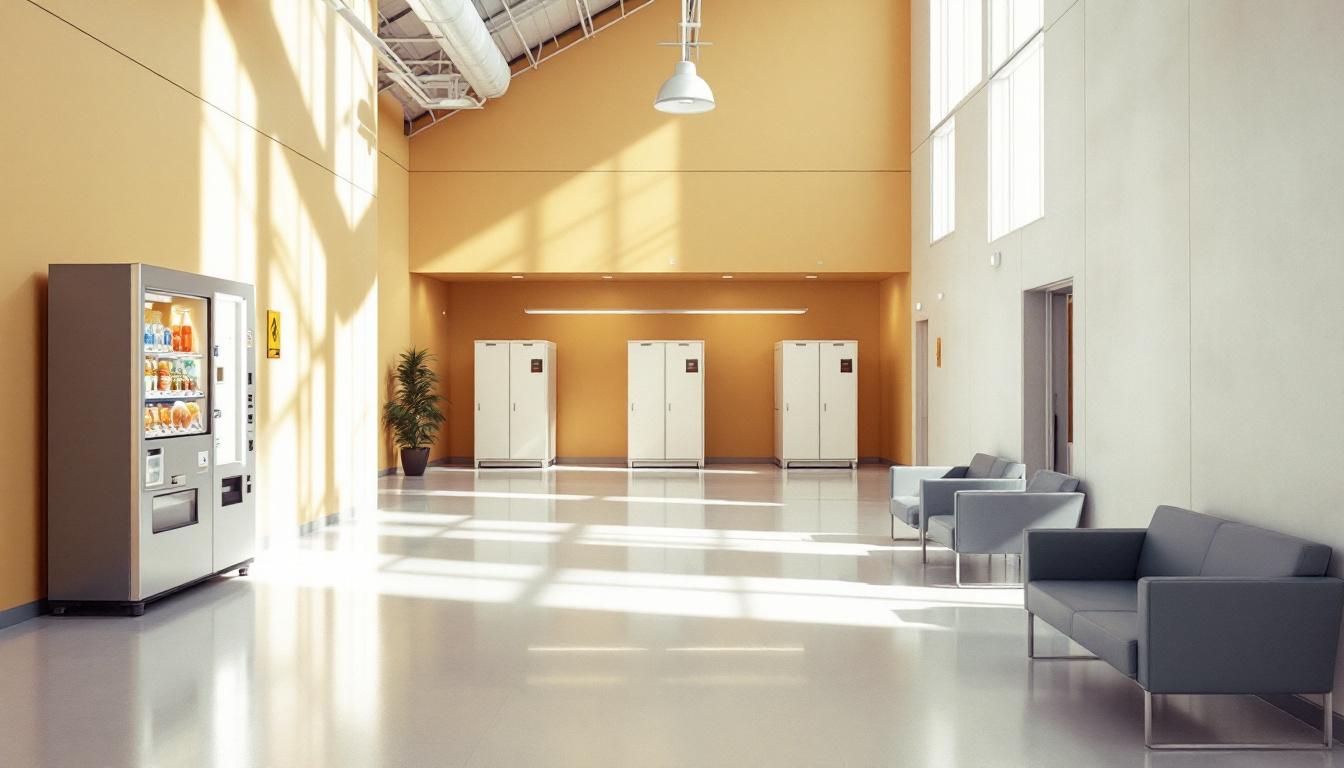
Structured routines currently form the backbone of institutional life, with consistent schedules that continue to provide residents with predictability and purpose. Wake-up typically occurs in the early morning hours, followed by meals served at regular intervals throughout the day. Work assignments generally begin after breakfast, with residents participating in various facility operations including kitchen duties, maintenance tasks, and cleaning responsibilities. The day continues with structured programming that may include educational classes, vocational training, or counseling sessions, all designed to deliver meaningful engagement and skill development.
Housing accommodations typically consist of shared cells or dormitory-style units, where residents maintain personal living spaces within established guidelines. Meals are generally served in designated dining areas at scheduled times, with menus that meet basic nutritional requirements. Additionally, residents usually have access to recreational facilities during designated hours, which may include outdoor exercise areas, indoor recreation rooms, and library services. Personal property is typically limited to approved items, while commissary privileges allow residents to purchase additional necessities and approved comfort items.
While daily routines provide structure, the facility also maintains systems that help residents stay connected with their support networks. Visitation typically occurs on scheduled days with advance arrangement, allowing families to maintain important relationships. Additionally, residents may access telephone services and correspondence opportunities to communicate with loved ones. Work assignments continue to play a central role in daily life, offering residents the opportunity to develop skills while contributing to facility operations. These structured elements work together to create an environment where residents can focus on personal growth while serving their sentences.
Ready to Connect?
Start communicating with your loved one today
Search for an Inmate
